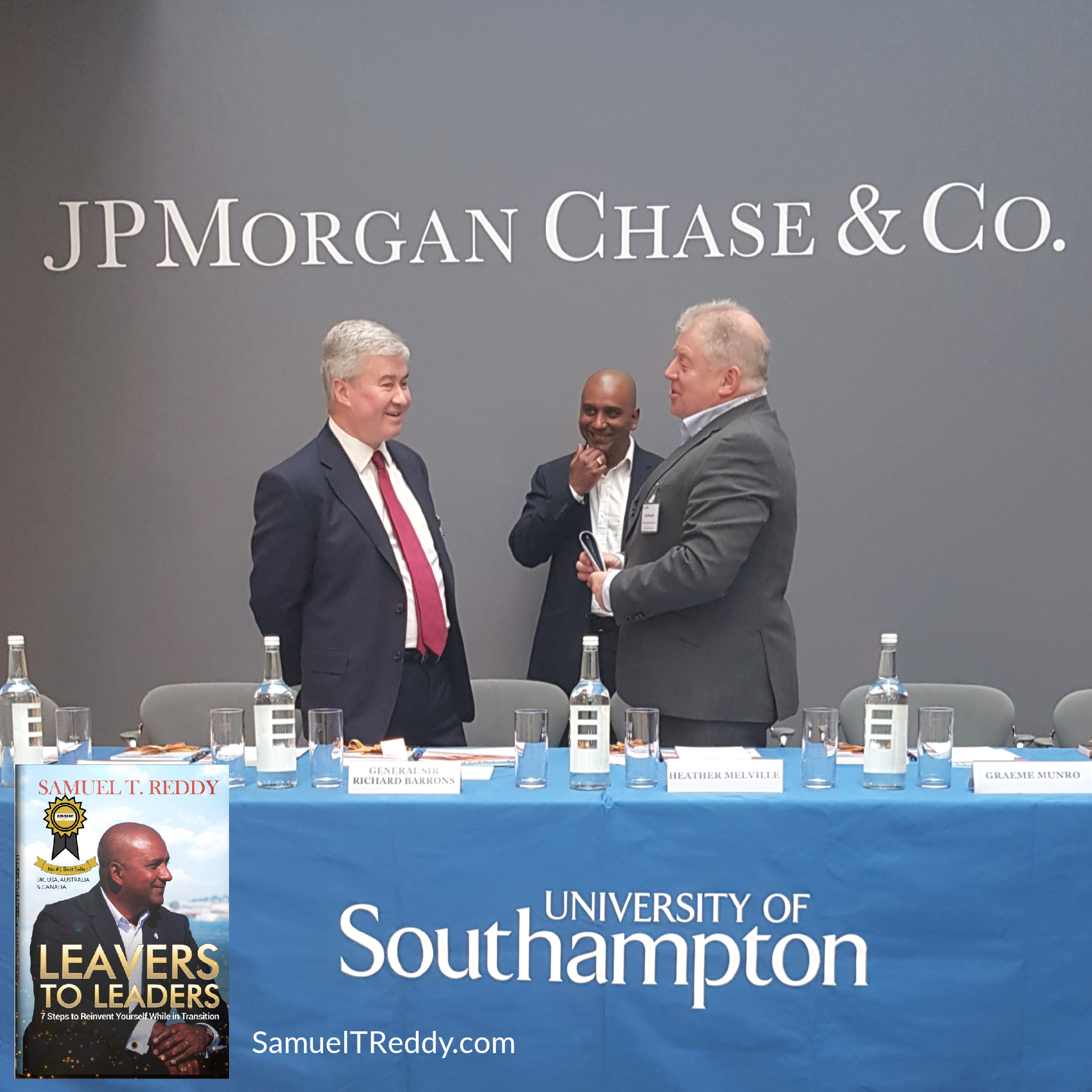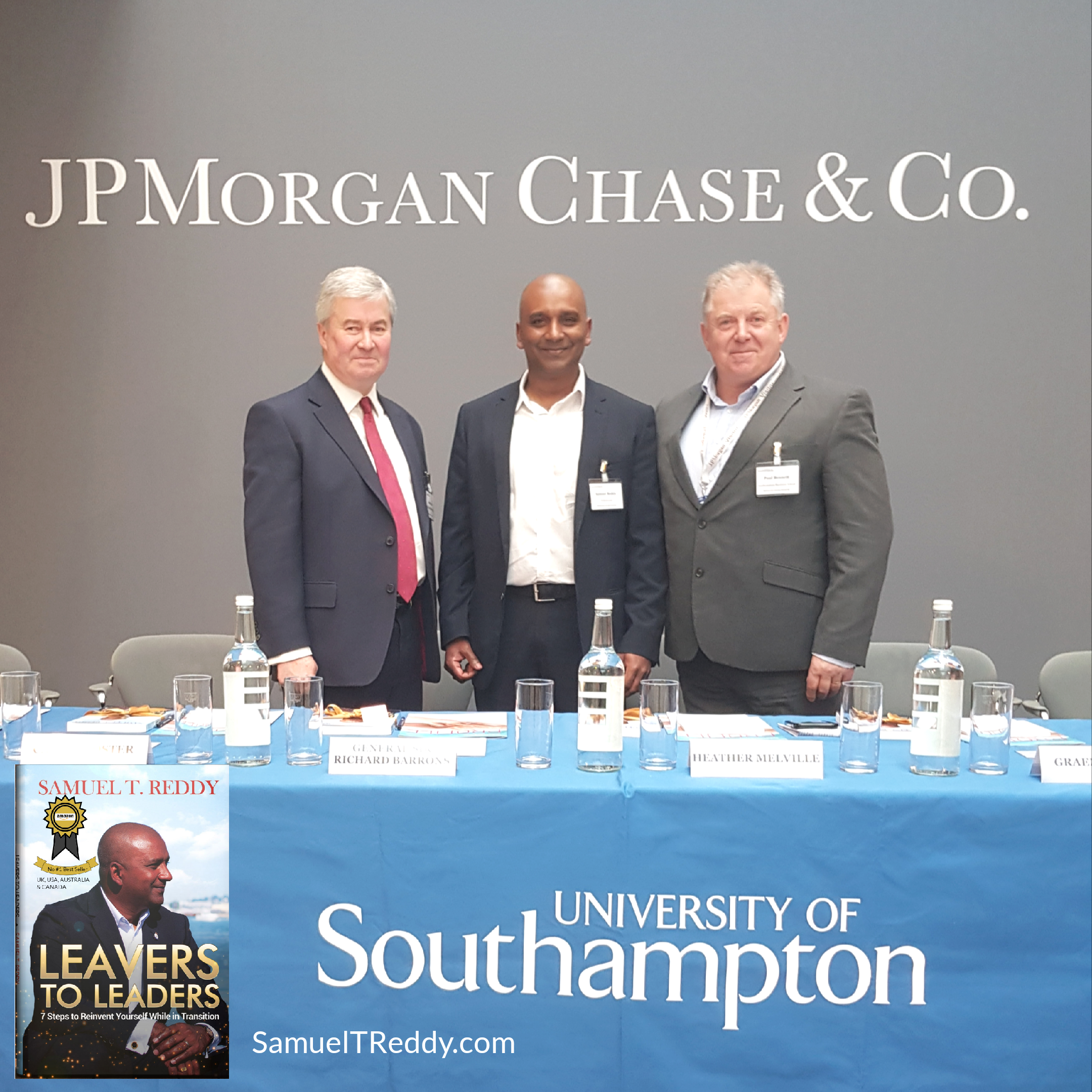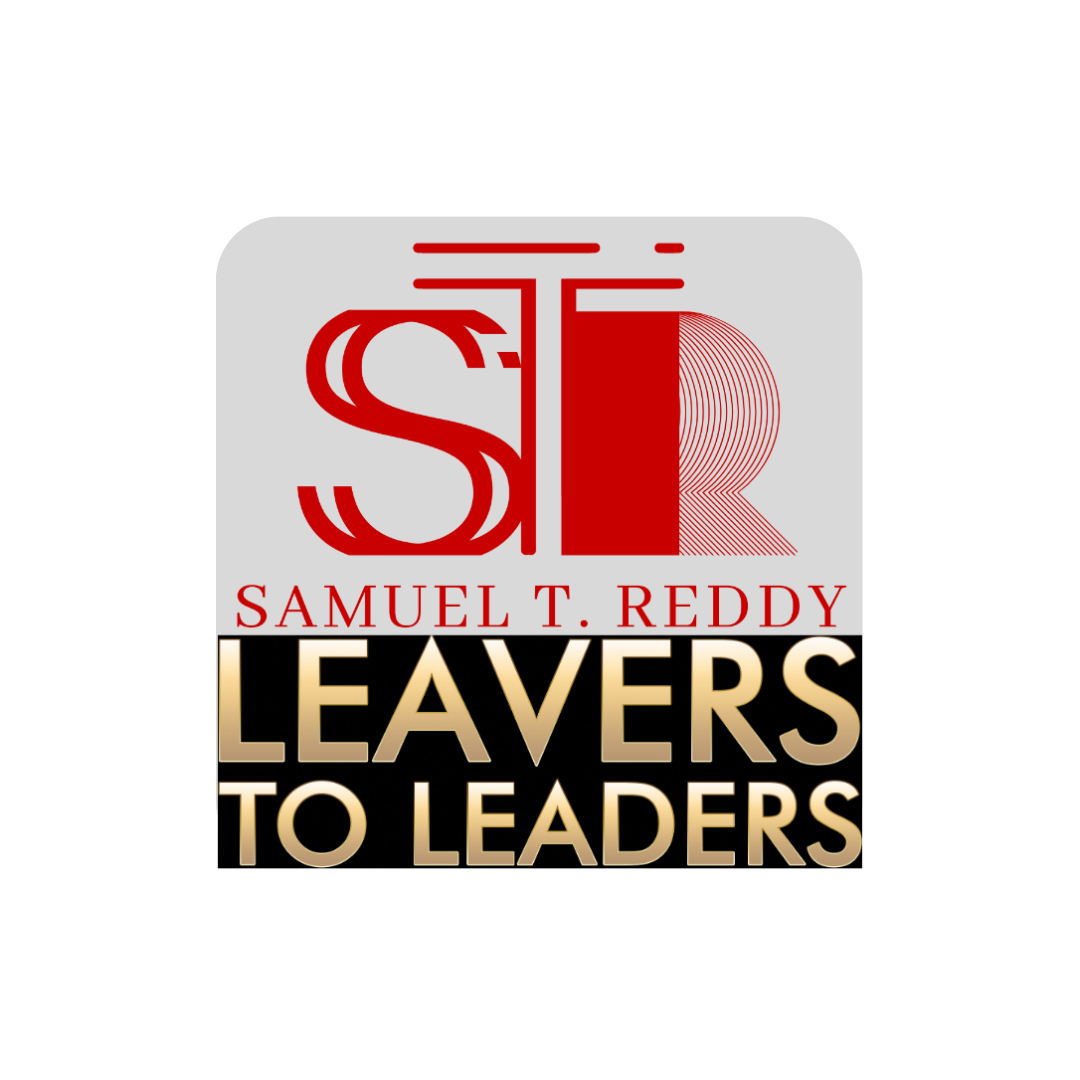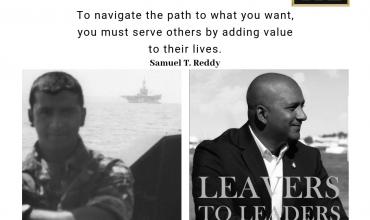“This book offers positive advice about what to expect and how to deal with it. I commend it to everybody who is making their transition run and knows they need a compass and a map.” — General Sir Richard Barrons KCB CBE
General Sir Richard Barrons KCB CBE

Thousands of sailors, marines, soldiers, airmen and airwomen leave their Service every year around the world. Whether they served their country in uniform for a few years or several decades, they all have in common that they took up arms, joining a vocation that required them to be committed, resilient, expert, and fit. They lived lives with very little separation between life and work, where everybody relies on each other – prepared if necessary to lay down their life for the man or woman next to them in the fight, as well as for their family, unit and country.
We all have to leave our Service at some time. Some leave as a result of itchy feet, some due to the toll of the tough exigencies of military life, a few through injury or illness, and many just because they got older. With very few exceptions, everybody of every rank and Service finds it hard when they leave. Of course, there are some immediate advantages: on finally taking off uniform there is more personal freedom to go where you want to and do what you please, the opportunity to try new things, free of the obligations that come with military service. But almost every leaver soon finds they have parted with a vocation, a way of life, that gave them purpose and self-respect, that felt like it really mattered, that developed them as individuals and found them lifelong friends. This is true, paradoxically, even for many of those who leave unhappy and determined to get out.
The step back into civilian life reveals a very different way of living and working. It’s not that it is necessarily bad, but it is necessarily very different. The prospects are actually good, many civilians seem to thrive in contented lives flush with more money than anybody in uniform will ever earn. If they want to, civilians can seize all the benefits of life in prosperous, liberal and safe societies can offer. On the other hand, there is no obvious vocation to commit to unless there is another aspect of public service to join, no longer the excitement of operations or the sense of belonging that military service engenders. The point is, the transition feels hard because it is hard. Perhaps the greatest tragedy around military service is not the friends who never returned from battle, or the life-changing mental and physical injuries some of us must bear, it is the thousands and thousands of veterans who find themselves apparently trapped in jobs that employ a fraction of their character, skill and experience, miserable through working for muppets for pennies, when with a little help they could be setting the world alight with their energy, entrepreneurial spirit, and leadership.
This is where ‘Leavers to Leaders’ makes a difference. Based on Sammy Reddy’s personal experience, not always a smooth ride by any means, and his energetic devotion to his own self-improvement and to helping those who also served, he offers a guide to us all on how to make that transition work. The seven action steps have been forged by contact with the hard-nosed, transactional, and charlatan-infested realities of commercial life. The book offers positive advice about what to expect and how to deal with it. I commend it to everybody who is making their transition run and knows they need a compass and a map. Sammy’s own journey shows what can be done, I hope everybody who reads it goes on to show what they can do too.
Forword by Paul Bennett, Director of Enterprise, Southampton Business School, University of Southampton.
P
“Samuel is a true thought leader and has the enviable ability of translating his thoughts into practical and actionable processes in this authoritative book.”
There can be little doubt we are now living in a time of unprecedented change. The fourth industrial revolution has given rise to globalisation and the unrelenting acceleration of technological advances has created a business landscape that is ever more complex, globally connected and competitive. Success in this new world order may require a different leadership response.
How can leaders best prepare to thrive and succeed in the new world order?
How will leaders ensure their organisations are fit for the future? In the coming
years, businesses will not only be measured by what they do, but also by how they do it, and how value is created.
More than ever before, leaders will need to be the instigators of innovation and enable their talented people to thrive in uncertain environments. It is unlikely in the future, that any one individual leader will be able to fully understand and deal with the high density of complex challenges facing them, alone. This suggests future leadership success could be dependent upon more collaborative and adaptive leadership approaches.
During uncertainty employees, clients and shareholders migrate to the people and organisations they trust. What will leaders need to do, to maintain trust? How will they develop a leadership agenda that is intelligent and purposeful in the face of social, technological, environmental, economic, political, legal and ethical scrutiny?
The character and integrity of the individual leader will matter, as will their ability to lead themselves, lead others and lead within their organisation in any given context. These three elements are critical and will require rigorous continuous development if a leader is to remain relevant and capable of leading successfully into the future.
I believe the Leaders Operating System contained in this book provides a very accessible and rigorous approach to leader development. It also provides a call to arms, to do what needs to be done, to be a fit for future leader.
I have known Samuel for a little over 3 years and he is without doubt one of the most tenacious, capable, and likeable individuals I have ever met. Samuel is a true thought leader and has the enviable ability of translating his thoughts into practical and actionable processes. In this authoritative book he provides an integrated system of development tools which can be used by all leaders at all levels within an organisation.
Paul Bennett is Director of Enterprise, Southampton Business School, University of Southampton. He is an elected member of the Board of Trustees of the Chartered Management Institute. He is an authority on leadership and management development, a professional speaker and a trusted adviser to Board members and Senior Leadership Teams in industry.





